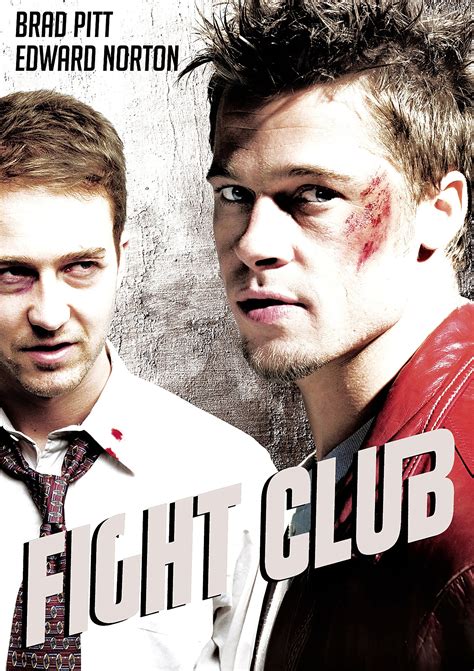Fight Club

Description:
Fight Club, released in 1999 and directed by David Fincher, is a provocative film that explores themes of identity, consumerism, and rebellion. The story follows an unnamed narrator who is disillusioned with his white-collar job and materialistic lifestyle. He forms an underground fight club with the enigmatic Tyler Durden, where men express their primal instincts through bare-knuckle fighting. As the club grows, it evolves into an anti-establishment movement, leading to unexpected and destructive consequences.Keywords:
Consumerism, Identity, Masculinity, Anarchy, Mental Illness, Inner Demons, Dual Identity, Postmodern, Doppelgängers, Identity Transformation, VoiceoverWhy was Fight Club so controversial?
"Fight Club," directed by David Fincher and based on Chuck Palahniuk's novel, sparked controversy for several reasons. Its exploration of themes like consumerism, masculinity, and nihilism challenged societal norms, promoting a philosophy that questioned modern life. The depiction of violence, particularly in the context of the underground fight club, led to concerns about glorifying aggression and promoting anti-establishment sentiments. Additionally, its twist ending and unreliable narrator raised debates about identity and mental health, further fueling discussions around its provocative content.
What are the 7 rules of a Fight Club?
In "Fight Club," the seven rules of Fight Club are:
1. You do not talk about Fight Club.
2. You do not talk about Fight Club (reiterated for emphasis).
3. If someone says stop, goes limp, or taps out, the fight is over.
4. Only two guys to a fight.
5. One fight at a time, fellas.
6. No shirts, no shoes.
7. Fights will go on as long as they have to.
These rules establish the covert and raw nature of the underground fight organization.
What mental illness does Fight Club portray?
"Fight Club" portrays themes related to dissociative identity disorder (previously known as multiple personality disorder). The protagonist, played by Edward Norton, struggles with insomnia and a profound sense of disconnection from himself and society. As the film progresses, it reveals that he has created an alter ego, Tyler Durden (played by Brad Pitt), who embodies his repressed desires and frustrations. This duality illustrates the conflict between societal expectations and personal identity, ultimately highlighting the psychological struggles of modern masculinity and consumerism.
What the heck is Fight Club about?
"Fight Club," directed by David Fincher and based on Chuck Palahniuk's novel, follows an unnamed narrator struggling with insomnia and dissatisfaction in a consumer-driven society. He forms an underground fight club with soap salesman Tyler Durden, who embodies an anarchistic philosophy. As the club evolves into a radical organization called Project Mayhem, the narrator grapples with his identity and the consequences of their actions. The film explores themes of masculinity, identity, and the impact of modern capitalism.
Explore More Categories: